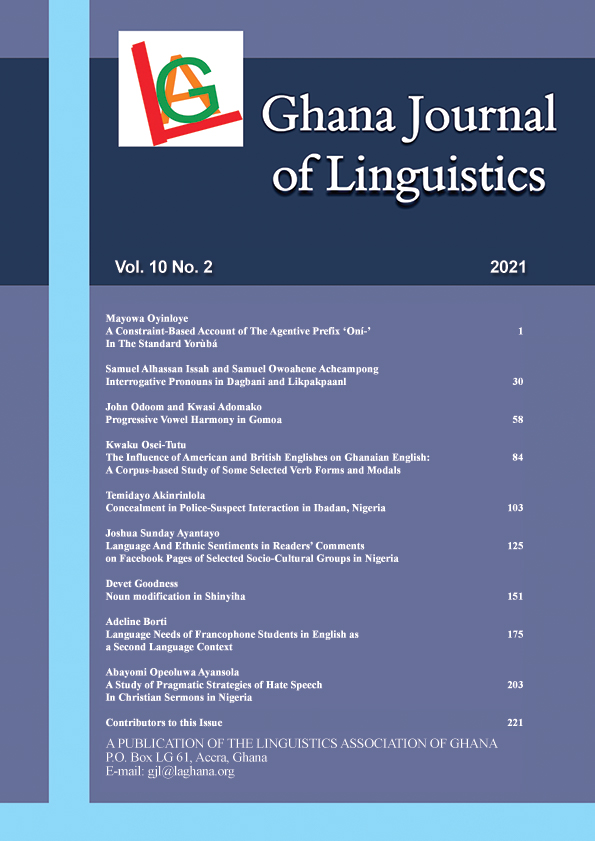Main Article Content
Concealment in Police-Suspect Interaction in Ibadan, Nigeria
Abstract
Police-suspect interaction, henceforth, PSI, is an integral aspect of forensic discourse. Existing scholarly works have engaged PSI from the linguistic and non-linguistic viewpoints. However, studies have been silent on the role of concealment in extracting confessional statements from suspects. It is against this backdrop that this study examines the discursive roles of concealment in PSI with a view to describing concealment strategies and their implications in police interrogation. The study is anchored on Dell Hymes’ ethnography of communication (EOC), considering its unequivocal engagement with contextual linguistic resources in representing participants’ goals in discourse. Interrogation sessions on conspiracy, felony, stealing, affray, and illegal possession of arms were tape-recorded at the State Criminal Investigation Department, Iyaganku, Ibadan, Oyo State. The study adopts the non-participant observation technique, unstructured and structured interviews. A discursive engagement of Dell Hymes’ EOC in investigating concealment in PSI Ibadan, reveals that IPOs and suspects adopt veiling, jargonisation, lexical replacement, hedging and deflection as concealment strategies. While suspects resort to concealment to seek exclusion, ignorance, withdrawal and anonymity, IPOs’ concealment strategies were orchestrated to seek suspects’ co-operation, allay suspects’ fears, boost suspects’ confidence, achieve confession with minimal input and protect suspects’ rights during interrogation sessions. Further studies on PSI could engage a comparative analysis of the use of concealment in PSI and civil cases.
Key words: Forensic discourse, confessional statement, concealment, police-suspect interaction, Ibadan






